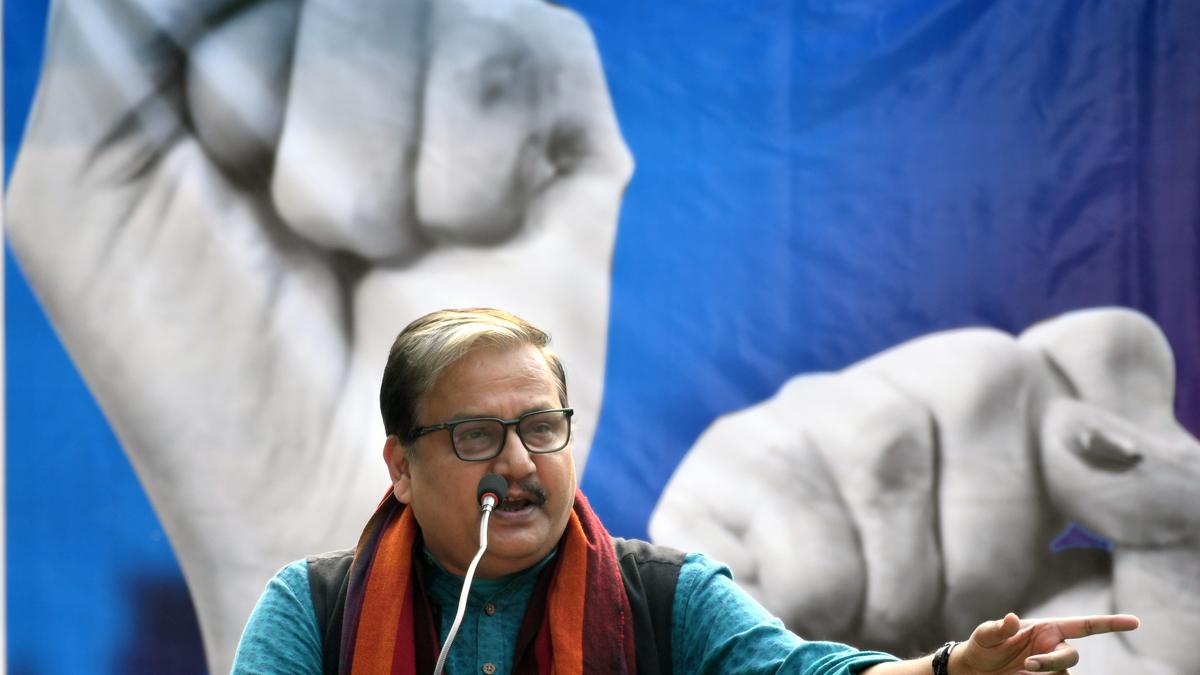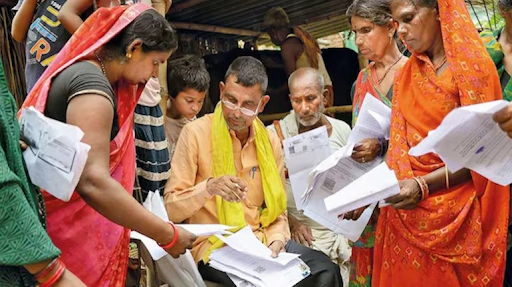



Civil Society Organisations (CSOs) promote democracy and inclusive development. It drives policy reform, deliver essential services, and ensure government accountability. However, it faces challenges from funding restrictions (FCRA) and regulatory burdens, alongside internal trust deficits. The way forward requires a government-CSO partnership, simplified regulations, and enhanced self-accountability.

Copyright infringement not intended
Picture Courtesy: THE HINDU
Civil society provide a check on state power and promote social issues, but it faces challenges like regulatory crackdowns, funding constraints, which make reform essential for its future strength.
Civil society comprises of voluntary organizations and associations, nonprofits (NGOs), community groups, advocacy organizations, social movements, unions, and faith-based groups.
They acts as a bridge between the public and government, promote citizen interests and encourage collective action.
Advocacy and Policy Reform: Amplify marginalized voices and advocate policy change. For example, grassroots movements by organizations like Mazdoor Kisan Shakti Sangathan (MKSS) pushed for the Right to Information Act (2005).
Service Delivery and Innovation: Fill gaps in public services, especially in remote or underserved areas.
Watchdog and Accountability: Monitor government and corporate actions, promoting transparency and good governance.
Community Mobilization and Empowerment: Organizes citizens to claim rights and resources.
Social Innovation and Entrepreneurship: Many NGOs develop new solutions to social problems. Pratham’s ASER program for improving basic education, Barefoot College create sustainable local enterprises.
Environmental and Human Rights Advocacy: Highlight issues like pollution, wildlife protection, labor rights, moving society toward more ethical and equitable policies.
Promoting Civic Engagement: Encourage participatory democracy. For example, Rajasthan’s MKSS movement institutionalized social audits, making villagers stakeholders in public spending.
Constitutional Rights: Article 19 guarantees freedoms vital for CSOs: (a) speech and expression, (b) assembly peacefully, and (c) association. These rights allow citizens to form NGOs and protest.
Statutory Framework: Civil society organizations register under various laws (Societies Registration Act, Indian Trusts Act, Section 8 of Companies Act).
Foreign Funding Regulation: Foreign Contribution (Regulation) Act (FCRA) regulates external funds. Its 2020 amendments; banning CSOs from re-granting foreign money to other NGOs and capping spending on administration to 20%.
Funding Restrictions: After liberalization, NGOs relied heavily on foreign aid. The 2020 FCRA amendments curtailed foreign funds (e.g. banning sub-grants and cutting admin budgets).
Regulatory Burden: NGOs must register and report under multiple laws (FCRA, tax rules, etc.). This red tape (with long delays) diverts resources to paperwork.
Civic Space Restrictions: Critics says that Laws (like Unlawful Activities Prevention Act or sedition laws) are frequently used to harass activists. Cases (e.g. closure of Oxfam India, Amnesty International India, and World Vision India) highlight pressure on CSOs.
Digital Divide: A survey found 95% of CSOs rely on the internet, but 78% lack basic digital tools. (Source: Connect Humanity survey)
Accountability and Public Trust: Scandals in NGOs (e.g. misuse of fund in Bihar Srijan scam) have led to general suspicion. Some citizens distrust NGO motives, seeing them as foreign-funded or elitist.
Volunteer and Talent Shortage: Many NGOs rely on volunteers. Yet retention is tough – volunteers often lack long-term commitment or professional skills, undermines program continuity.
Internal Coordination: Groups working on the same issue duplicate efforts instead of collaborating. Building coalitions requires time and resources, and sometimes ideological differences hinder unity.
Urban and Elitist Bias: Many CSOs are concentrated in urban areas and are run by educated, middle-class professionals, creating a disconnect from the grassroots realities they aim to address.
Lack of Internal Democracy and Transparency: Opaque governance structures, with power concentrated in the hands of a few founders, leading to a lack of internal democracy and accountability.
Foreign Agenda Allegations: Heavy reliance of some CSOs on foreign funding has led to accusations that they are pushing agendas of foreign donors.
Simplify Regulations: Introduce single-window clearances and digitalization for registrations and compliance. For example, MHA’s move to allow online FCRA filings need to be extended to all NGO paperwork to ease compliance.
Encourage Funding Diversity: Motivate domestic philanthropy and CSR, provide higher tax deductions (e.g. increasing 80G limits for donors) and a national CSR–CSO matchmaking platform.
Build Capacity: Launch a national capacity-building program for NGOs.
Promote Collaboration: Regular conferences can encourage knowledge-sharing. Encourage issue-based CSOs to reduces duplication and amplifies impact.
Institutionalize CSO Participation: Formalize civil society’s role in policy making. For example, CSOs seats on relevant advisory boards and committees.
Promote Digital Engagement: A “Digital CSO Initiative” could provide grants or subsidized tech (software tools, cloud services) and expert mentoring.
Sustainability through Social Enterprise: Provide low-interest loans or seed funding for NGO-run enterprises to reduce donor dependence.
International and Multi-Stakeholder Support: Learn from global initiatives. Aligning with global covenants (like the UN Partnership for SDGs) can attract technical and financial support for strengthening civil society.
Each of these steps requires joint effort by government, CSOs, and society. Governments must see CSOs as partners in development, not adversaries. At the same time, NGOs should adopt higher accountability and self-regulation to maintain credibility.
Source: THEHINDU
|
PRACTICE QUESTION Q. Discuss the role of civil society in strengthening India's federal structure. 150 words |
Civil society refers to the "third sector" of a society, separate from the government (first sector) and the business world (second sector). It includes a wide range of organizations and associations that operate voluntarily for the public good.
Civil society acts as a vital check and balance on government power, promotes citizen participation, and ensures that the voices of marginalized groups are heard, thus strengthening democratic processes.
SHGs are small, informal associations of people who voluntarily come together to save money and contribute to a common fund, which is then used to provide loans to members on a rotational basis.




© 2026 iasgyan. All right reserved